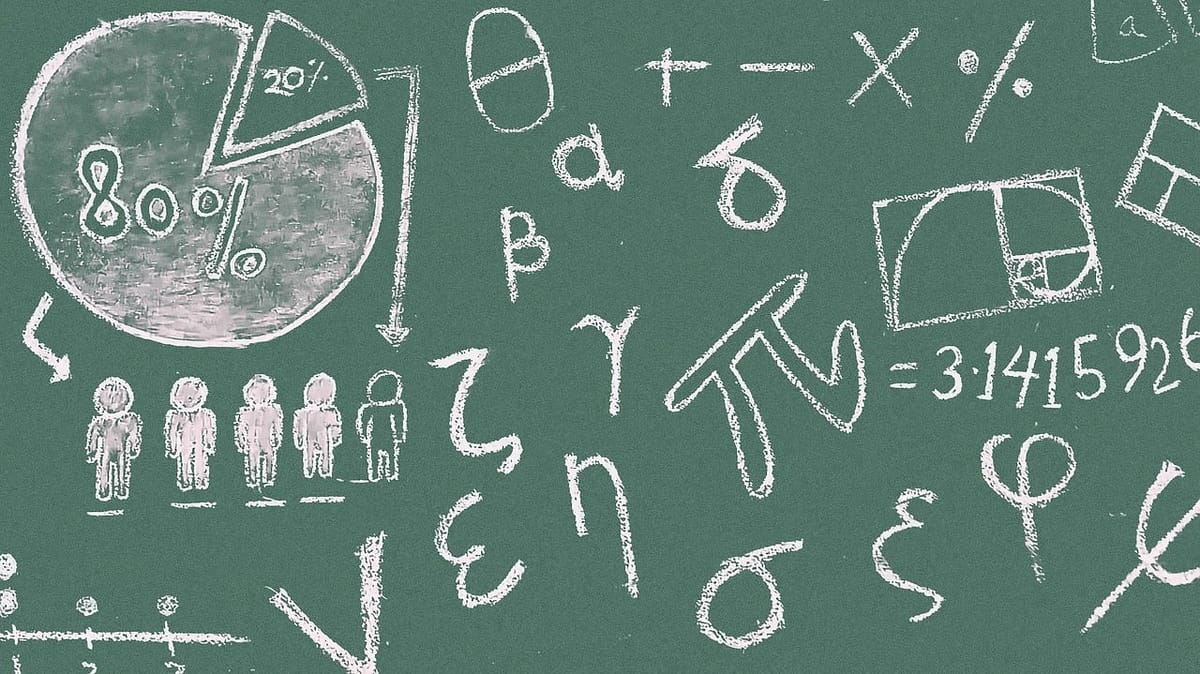Has Economics Become Too Mathematical?

Krish Chaddha
Introduction
Definitions of the phrase ‘too mathematical’ would be heavily contested in this context, however, for the purposes of this essay, something would be classed as ‘too mathematical’ if a significant proportion of the population is unable to comprehend it — given that the field of economics looks at the welfare of society at large. I believe that economics has become too mathematical, since the possibilities that mathematical analysis provided for the field were made apparent towards the end of the nineteenth century. However, this is not problematic by any means, as this discipline is positively developing due to the contributions of mathematics.
Historical Context and Current State
The cognate disciplines of Economics and Philosophy have been interwoven through the annals of history, epitomised with The Code of Hammurabi in Babylonian law, circa 1750 BCE, establishing foundational economic principles which were extensions of philosophical thought —outlined in the enforcement of contracts and protection of property rights. Three millennia later, Ibn Khaldun’s pioneering work ‘Al-Muqaddimah’ demonstrates that economics continued to be a qualitative field rooted in philosophical inquiry, with his insights into the role of government and division of labour stemming from theoretical exploration rather than metrics and models.
The late nineteenth century marked momentous change in the field with calculus and fixed-point theorems becoming cornerstones of modern economic thought. Léon Walras emerged as a prominent figure during this period, spearheading the Marginal Revolution and the calculation concerning marginal utility and price. Walras also developed a price adjustment mechanism as part of his General Equilibrium Theory which involved complex mathematical mapping. The formalisation of economics happened at an accelerated pace following World War II, and this can largely be attributed to Paul Samuelson — who championed the use of sophisticated mathematical models to derive economic principles. Today, economics is viewed, by many, as a mathematically intensive discipline, necessitating proficiency in mathematics to navigate its contents.
Why and How Economics Has Become Too Mathematical
The transformation of economics — from a discipline which crafted its theories with an emphasis on the broader welfare of society, to a mathematically oriented field — has been catalysed by the exponential increase in the availability of data, in conjunction with the significant increase in computational power. Economists can now efficiently create and refine a multitude of intricate metrics, with precise modelling programs. Consequently, these quantitative models have become an indispensable tool, in the arsenal of economists, when developing contemporary economic theories.
The growing complexity of these mathematical models contributes to the deepening of the schism between economic theory and public comprehension. This means that as economic analysis becomes more intricate, the non-specialist populace may disengage with economic discourse, thereby potentially becoming marginalised in socioeconomic decision-making. This shows that the increase in mathematical complexity in the field has outpaced progress in general arithmetic cognition
One prevalent manifestation of this disconnect is the widespread misunderstanding of what is meant by inflation — a very rudimentary economic concept. Inflation statistics can help economists predict the future inflation rate, decide upon monetary policy, and it also influences public perception of the government. However, a recent study concludes that 1/3 of the public misunderstands what is meant by inflation and thus misjudges the state of the economy. This evidenced misconception is indicative that economics has become ‘too’ mathematical for significant proportions of society, who may have been able to grasp fundamental concepts better when it was less laden with mathematics.
The concept of fiscal drag further exemplifies that economics has become increasingly complicated. Without linking taxation brackets to the rate of inflation, fiscal drag is inevitable. Hitherto explained that inflation in itself was not very well understood, so the interdependency of inflation with other metrics is even less likely to be understood. Therefore, when budgets and manifestos are released, the public may struggle to interpret the ramifications of various policies correctly or would be deterred from socioeconomic participation altogether due to the difficulty in critically evaluating various economic policies.
‘Too mathematical’ is a very broad-brush term, as identified earlier, and whilst it is plain to see how economics may be too mathematical for vast swathes of the population — through it simply confusing them — whether or not this constitutes ‘too mathematical’ is very subjective. Nonetheless, I believe that economics has become too mathematical as parts of society have somewhat been left behind, whilst mathematical complexity has progressed rapidly in the field.
Why This Is Not Problematic
Asserting that economics becoming more mathematically centred is problematic is untenable. Disciplines will evolve to confront the challenges that society is confronted with, utilising the tools of the day. Had the medical field not embraced electronic health records, healthcare would be undoubtedly impeded. Had the education sector not adapted to online learning during COVID-19, a generation would be academically vulnerable. Had news agencies not evolved to integrate with social media, they would perhaps not exist anymore. At the end of the 20th century, economics evolved to enhance the discipline's ability to develop concrete theories.
It is undeniable that the incorporation of mathematics in economics was beneficial for the field, however, the rate at which this occurred (and the turbulent political landscape of the time) meant that the transmission of these conclusions throughout society was not successful — leaving many confused about what these new metrics mean for them. Therefore, it is logical to conclude that the problem is not economics being ‘too mathematical’, but rather that fundamental economic frameworks have not been sufficiently explained to the masses. Ensuring clear communication and education about these economic advancements would rectify this information failure.
Conclusion
The field of economics has advanced as a result of the increased incorporation of mathematics within it — be it the precise modelling of phenomena, or the discovery of new metrics with real-world applications. This increase in quantitative vernacular used in economic discourse has created a disconnect between economic theories and public comprehension of them, either it has been misunderstood or parts of the population disengage with economic dialogue due to these complexities. The challenge for society is to bridge this gap and inform society about core economic principles which apply to them individually.
Notions that economics has lost its qualitative element can largely be disregarded, as an increase in numerical manipulation does not demand a sacrifice of descriptive works. As Paul Krugman aptly puts it “criticism of formalism in economics is an attack on a straw man: the reality of what good economists do is a lot less formalistic than the popular image”.




Comments ()